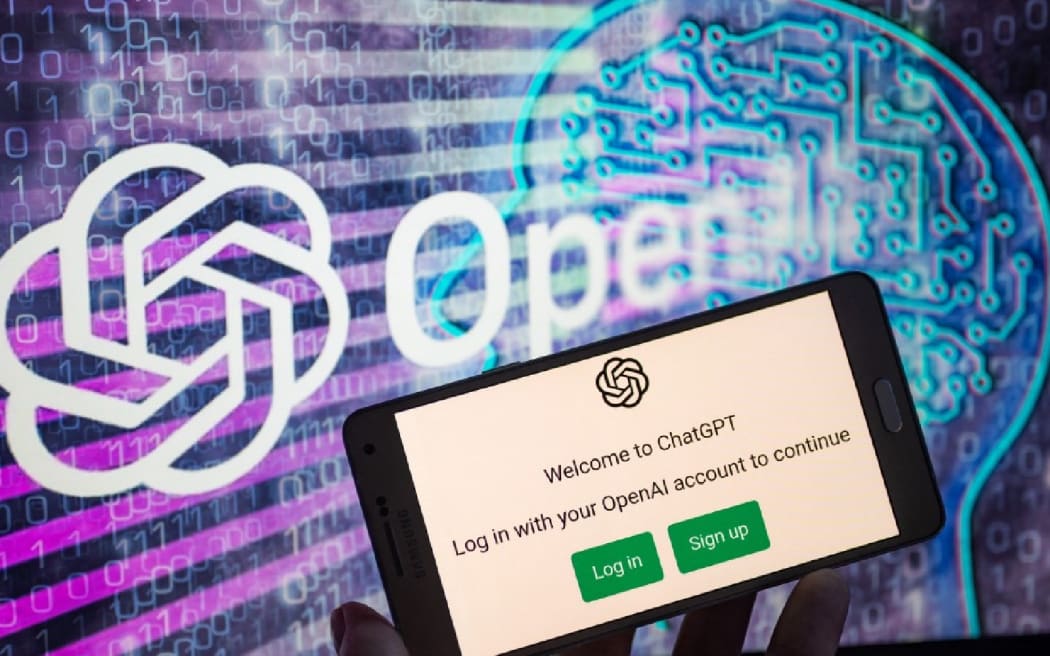ChatGPT: What is it and why is it banned in some areas?

ChatGPT – or Chat Generative Pre-Trained Transformer – is a chatbot launched by OpenAI in November 2022.
photograph: 123 RF
Type a prompt or question and get a (nearly) accurate, eloquently worded answer.
Generative AI ChatGPT offers endless opportunities to find answers to every question you’ve ever asked, but it was also created with some concerns.
A spokeswoman for the Queensland Department of Education said it has blocked ChatGPT for students on the ministry’s network until it is fully “validated”.
Queensland joins NSW in banning apps in public schools. Victoria denies blocking ChatGPT.
What is ChatGPT?
ChatGPT – or Chat Generative Pre-Trained Transformer – is a chatbot launched in November 2022 by OpenAI, a company that researches and deploys artificial intelligence.
A language model that can generate realistic and human-like text.
ChatGPT can be used for language translation, or for summarizing large amounts of text to demonstrate article accuracy.
It can also generate a text response on any subject when prompted, making it useful as a customer service chatbot.
Why are schools and universities worried about it?
A major concern is that college and school students may use ChatGPT to cheat on their writing assignments without being noticed.
It has been said that this is like a student outsourcing their homework to a robot.
However, some educators also talk about using ChatGPT’s existence as a major opportunity for more credible assessments that reflect the challenges students may face in the real world. increase.
This requires a fundamental rethinking of school and university assessments to make plagiarism more difficult.

ChatGPT is made by the technology company OpenAI.
photograph: Jonathan Lah/NurPhoto/NurPhoto via AFP
Leonie Rowan, director of the Griffith Institute for Education, said ChatGPT also has the potential to improve learning outcomes for disadvantaged children who do not have access to a tutor.
“There are so many positive aspects,” Rowan said.
“It has great potential.
“For example, there may be opportunities to help children from non-English language backgrounds, culturally and linguistically diverse learners, and refugee children.”
How can educators know if students are using it?
Corresponding to ChatGPT’s launch, an online tool has already emerged that can detect material generated by artificial intelligence, called AICheatCheck.
It uses a proprietary artificial intelligence model to predict whether text was written by a human or machine based on word choice and sentence structure.
“Student misuse of artificial intelligence may be considered academic misconduct or technical violations,” said a ministry spokesperson.
“It is also important that schools educate students about the ethical and academic implications of using AI to complete assignments as part of school policies and guidelines.”
Should ChatGPT be banned by schools and universities?
Rowan advocates embracing technology rather than banning it.
“I can understand why banning it seems like an easy and quick solution,” she said.
“But you can’t shut people out of the world, and you can’t shut kids out of the world.
“I don’t think it should be banned. I don’t think it can be.
“Be curious before you get scared. Humans are amazing. We’ve learned how to use fire to our advantage and how to make our lives better thanks to all sorts of technological advantages.”
“I am optimistic about ChatGPT’s present and future.”
Rowan said there was no evidence that the emergence of ChatGPT would lead to a “cheating tsunami.”
And she said there were already people writing assignments for students before ChatGPT came along.
“It’s already an industry,” she said.
“[ChatGPT] An opportunity to think, “Wow, what does this amazing new space enable us to do and encourage us in new kinds of ways?”
“Perhaps this is a wake-up call that our assessment needs to be more individualized.”
Beyond education, how can ChatGPT be used?
Rowan said chatbots will affect people “trying to navigate all kinds of foreign systems.”
For example, it has great potential to help people from culturally and linguistically diverse backgrounds create job applications.
ChatGPT can also be used for creative purposes such as writing songs and poems, and is used for basic output such as writing and replying to emails.
-ABC
https://www.rnz.co.nz/news/world/483039/chatgpt-what-is-it-and-why-is-it-being-banned-in-some-places ChatGPT: What is it and why is it banned in some areas?
